When you are working in a fast-paced world, you need convenient and quick accessibility to your documents on Android home screen. This not only improves your workflow but also makes the work more efficient when you are dealing with large number of PDF files. Whether you are a student tired of frequently switching between course materials, notes, and assignment PDFs, or a professional frustrated with retrieving contracts, reports, and other PDFs from different folders, learning to fix PDF files for quick access on your mobile home screen can be helpful.
Therefore, learning how to add PDF to home screen Android allows you to become more productive without shuffling through multiple apps to find a relevant file. Therefore, in this article, we'll go through multiple methods and find the most suitable technique to add PDF to home screen on Android.
Part 1. Using Google Drive to Add PDF to Home Screen Android
After a basic understanding of the importance of adding PDF to home screen Android devices, let's look into the method of using Google Drive. This cloud storage application allows users to add PDFs to the home screen on Android for quick access. You can also share a copy of the file or the link to your PDF with anyone you want using this platform, which is displayed in the steps below:
Step 1. After launching the Google Drive app, locate the PDF file and tap the "three-dots" on the document for opening a pop-up menu.
Step 2. For adding a shortcut of the PDF file on your Android home screen, use the "Add to Home Screen" option from the menu.
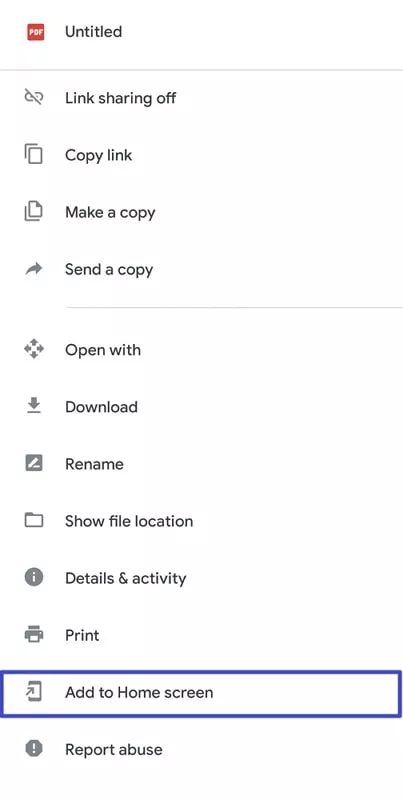
Part 2. A Third-Party Guide to Adding PDF to Home Screen Android
Apart from using Google Drive, you can opt for third-party tools such as Shorty or built-in File Explorer to add PDF to home screen Android phone with ease. In this section, we will discuss the top two tools you can choose for this process to access the PDF files on your home screen quickly:
Using Third-Party App
Shorty is an Android mobile application that lets users add any file or URL of their choice to the main home screen of their devices. With the help of this application, you can add files to the home screen from the interface of any other mobile app. Users can customize the pin icon according to their requirements to navigate it more easily.
Step 1. As you locate the PDF file within any app of your Android device, long-press the PDF and hit the "Share" icon/button to access a new bottom-up menu.
Step 2. After accessing the "Share with" menu, you will find multiple options for sharing your PDF file. Here, pick the "Shorty" icon labeled as "Pin to home screen" to proceed with this task.
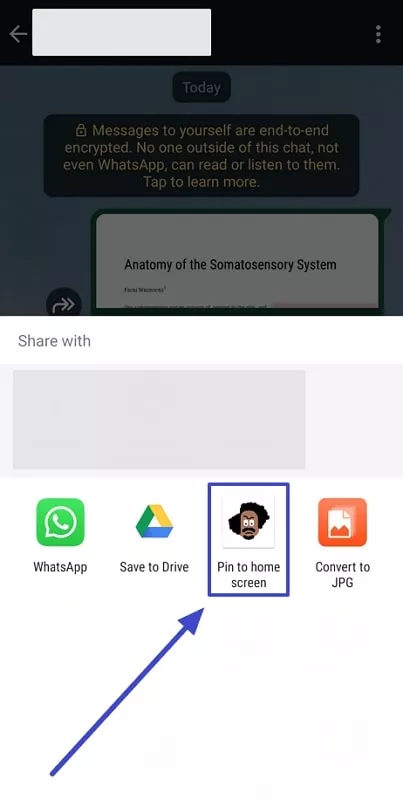
Step 3. A "Create Shortcut" window opens up through the application, where you have to adjust the pin style and add tags. Once you are satisfied with the changes, tap the "Tick" icon at the top right corner and hit the "Add" button from the new pop-up menu to get the job done.
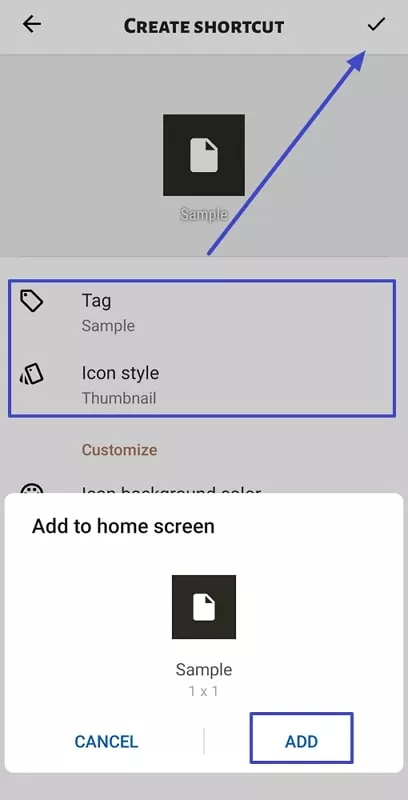
Using File Explorer App
Moving on, let's examine how to add PDF to the home screen of Android using File Explorer in just a few steps. Users can also adjust the settings of the shortcut they create according to their needs. Moreover, through File Explorer, you can manage your files effectively and save them in an organized manner. Explore the quick start guide below to understand how to add shortcuts using this built-in file manager:
Step 1. Open the File Explorer on Android and move to the "Documents" folder. Then, browse through the files and locate the PDF file you want to create a shortcut to.
Step 2. After locating the PDF, long-press and tap on the "three-dots" present on the bottom of the screen. A pop-up menu shows up, and you must select the "Create Desktop Shortcut" option to pin the PDF on the home screen.
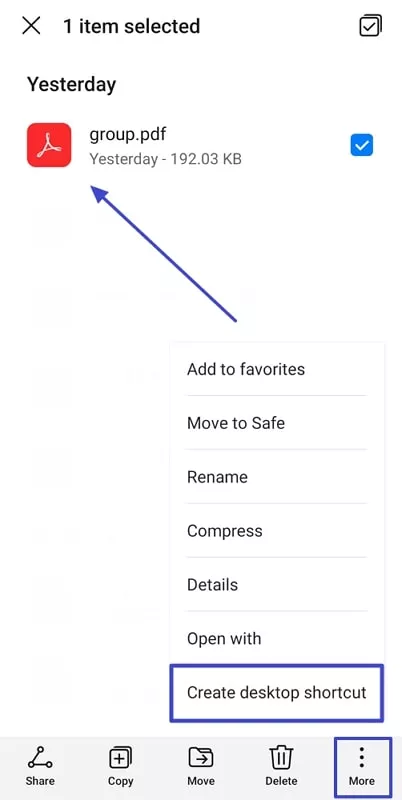
Bonus Part. Optimize PDF Opening on The Home Screen with UPDF
We have discussed multiple methods on how you can add PDF to the home screen on Android phone with various effective apps. However, simply pinning the PDF to the home screen only addresses the "quick access" issue. In actual work, further annotation, editing, or compressing of files is needed. Sometimes, you may also want to use different reading modes (such as night mode or dual-page view), so you need an excellent PDF reader. UPDF is one such PDF reader and editor, offering advanced editing features that let you add and customize text and images in your PDF file. It is available on Android, iOS, Windows, and Mac systems.
By simply clicking the PDF shortcut on the home screen, which opens by default with UPDF, you can:
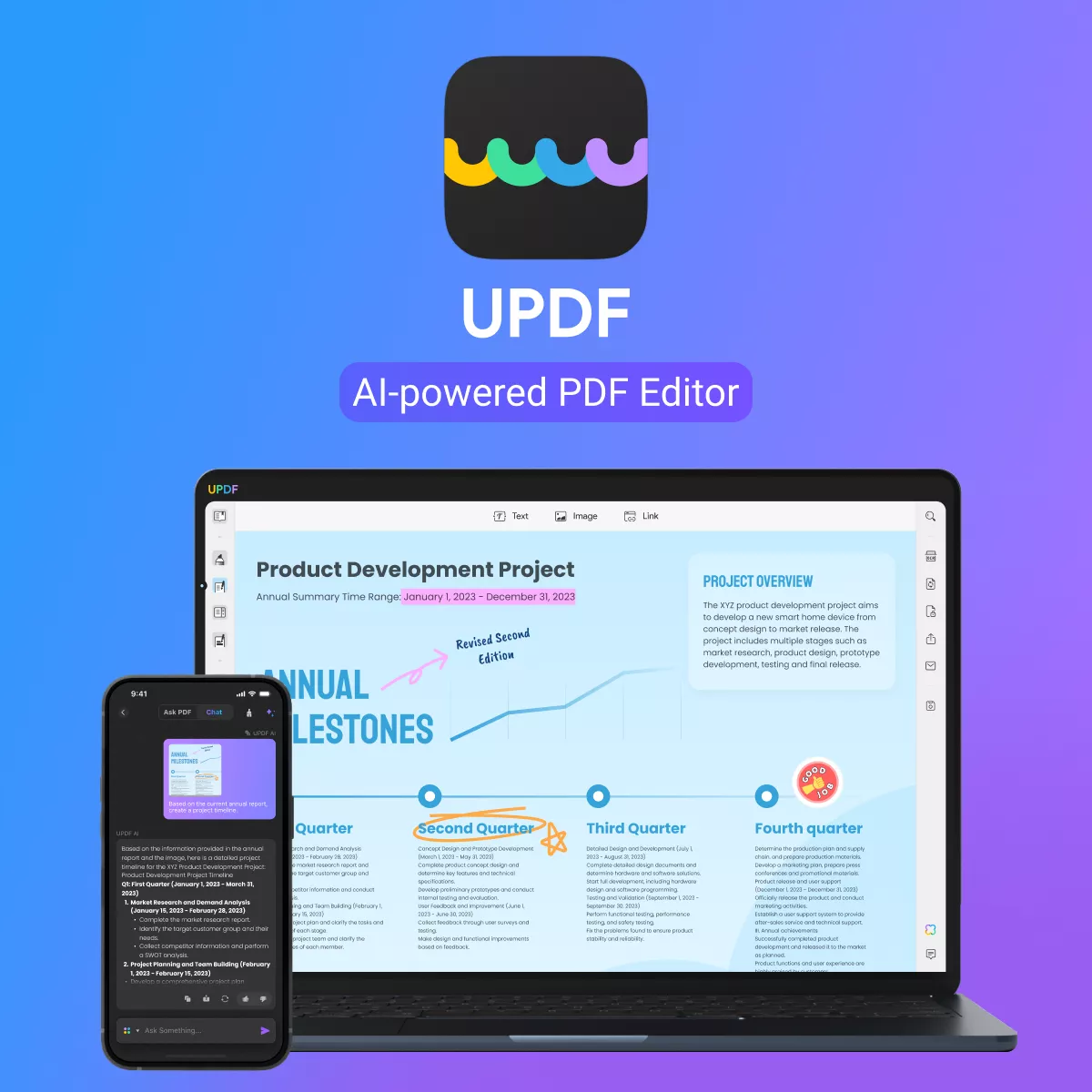
- Easily and conveniently read PDF files with the AI assistant, which can summarize and rephrase lengthy PDF text files, along with features like AI PDF-to-mindmap and chatting with PDFs/images.
- Add bookmarks to navigate through the pages more efficiently and locate specific sections. It even supports renaming, recording, and deleting added bookmarks to avoid cluttering the document.
- Choose from various display modes, from single-page view to two-page scrolling, for better visualization.
- Reduce the size of heavy PDF files without losing quality by using the compression feature. This allows for easier sharing with colleagues or helps avoid email delivery failures related to large files.
- Effortlessly manage your files with UPDF, which offers options like print, copy, share, and more. You can also manage folders by creating sections, renaming them, and removing them whenever necessary.
- Extract information, copy and paste text, and share or delete pages according to your desires when organizing your PDF.
Let's further compare the experience with and without UPDF on the mobile home screen:
| Operational Steps | Without UPDF | With UPDF |
| Open PDF | System default reader, limited functionality | Automatically matches the best reading layout |
| Urgent Text Modification | Cannot edit directly | Built-in editor to annotate, comment, take notes on, markup, sign, edit, PDF. |
| Cross-device Synchronization | Manual file transfer | UPDF Cloud automatically syncs annotated versions |
| Meeting Scenario | Cannot present PDF as a slideshow | Present PDF as a slideshow + laser pointer tool for demonstration |
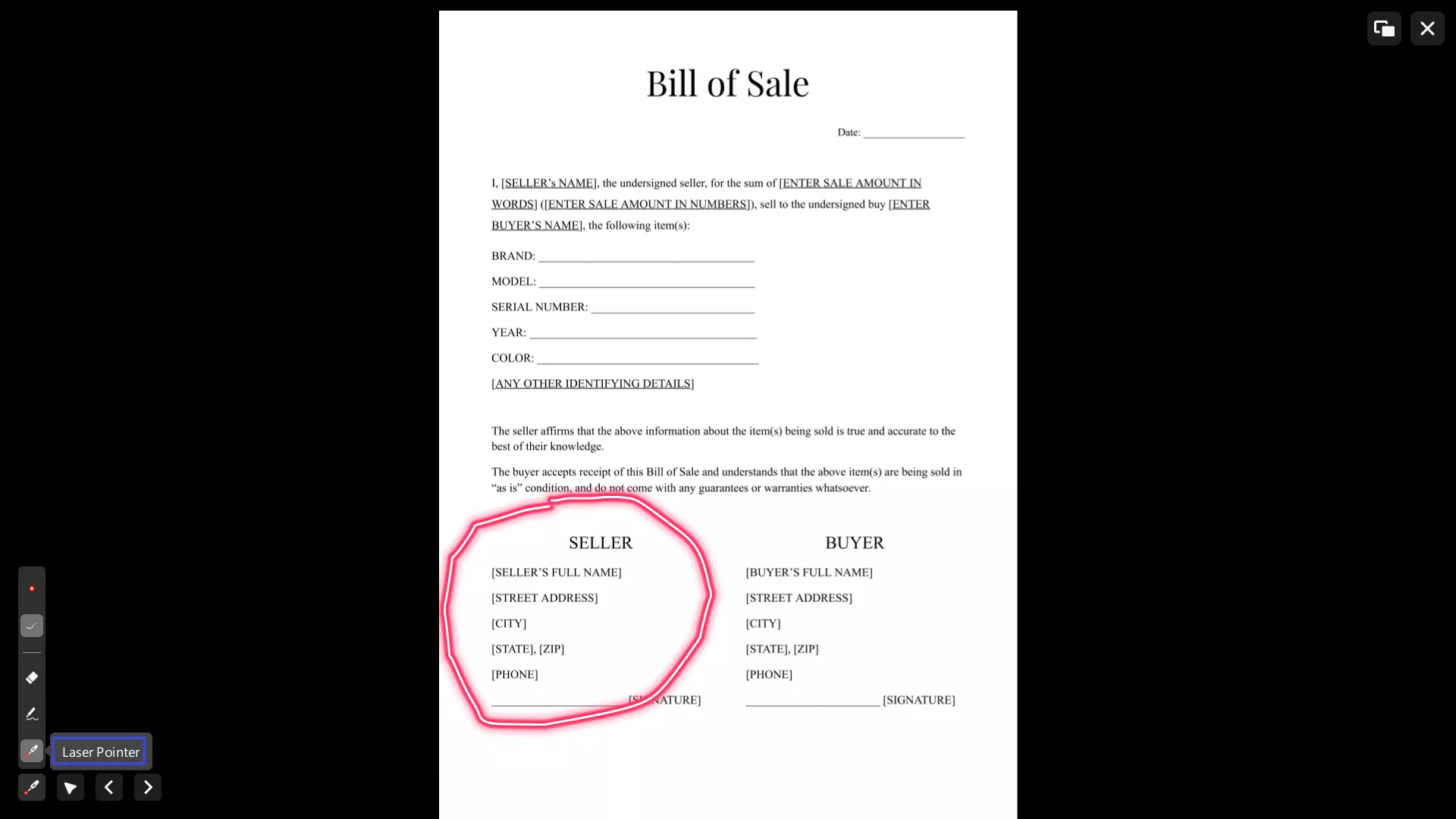
Keeping in view all these features, we recommend you download the UPDF app on your device to enjoy the optimized reading sessions.
Windows • macOS • iOS • Android 100% secure
Conclusion
To conclude the article, after adding PDF to the home screen on Android, you can quickly access important PDF files. That's why you need to learn how to add PDF to your home screen Android by utilizing Google Drive and multiple excellent third-party apps. They help you explain the simple procedure of adding a PDF to your Android home screen.
However, when you're done adding that, the only PDF reader you can turn to is the UPDF app, which offers an outstanding reading experience. It lets you switch between pages by changing the displays, letting you search for specific words and much more. Download this advanced application on your device to streamline the workflow.
Windows • macOS • iOS • Android 100% secure
 UPDF
UPDF
 UPDF for Windows
UPDF for Windows UPDF for Mac
UPDF for Mac UPDF for iPhone/iPad
UPDF for iPhone/iPad UPDF for Android
UPDF for Android UPDF AI Online
UPDF AI Online UPDF Sign
UPDF Sign Read PDF
Read PDF Annotate PDF
Annotate PDF Edit PDF
Edit PDF Convert PDF
Convert PDF Create PDF
Create PDF Compress PDF
Compress PDF Organize PDF
Organize PDF Merge PDF
Merge PDF Split PDF
Split PDF Crop PDF
Crop PDF Delete PDF pages
Delete PDF pages Rotate PDF
Rotate PDF Sign PDF
Sign PDF PDF Form
PDF Form Compare PDFs
Compare PDFs Protect PDF
Protect PDF Print PDF
Print PDF Batch Process
Batch Process OCR
OCR UPDF Cloud
UPDF Cloud About UPDF AI
About UPDF AI UPDF AI Solutions
UPDF AI Solutions FAQ about UPDF AI
FAQ about UPDF AI Summarize PDF
Summarize PDF Translate PDF
Translate PDF Explain PDF
Explain PDF Chat with PDF
Chat with PDF Chat with image
Chat with image PDF to Mind Map
PDF to Mind Map Chat with AI
Chat with AI User Guide
User Guide Tech Spec
Tech Spec Updates
Updates FAQs
FAQs UPDF Tricks
UPDF Tricks Blog
Blog Newsroom
Newsroom UPDF Reviews
UPDF Reviews Download Center
Download Center Contact Us
Contact Us


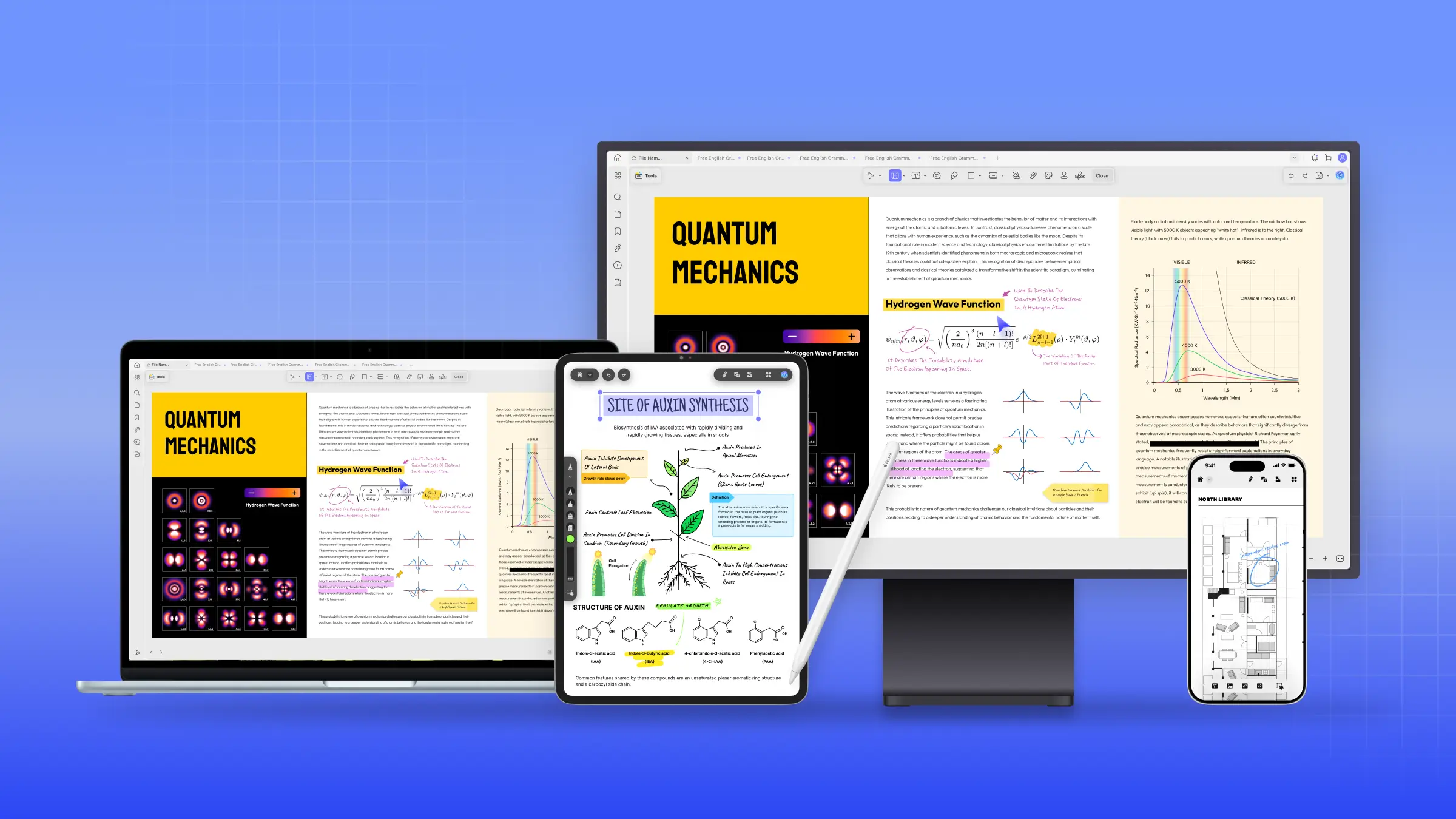

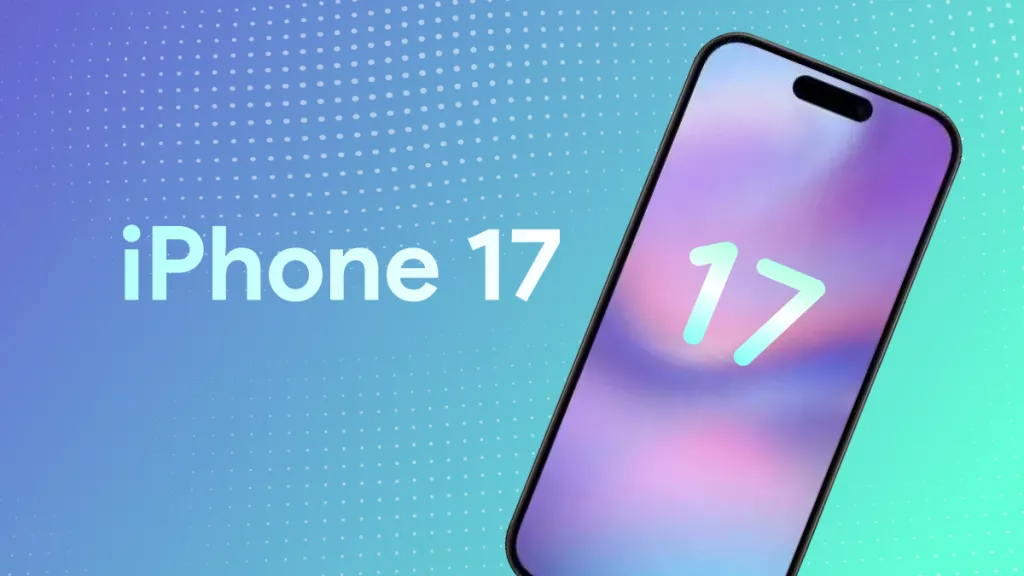

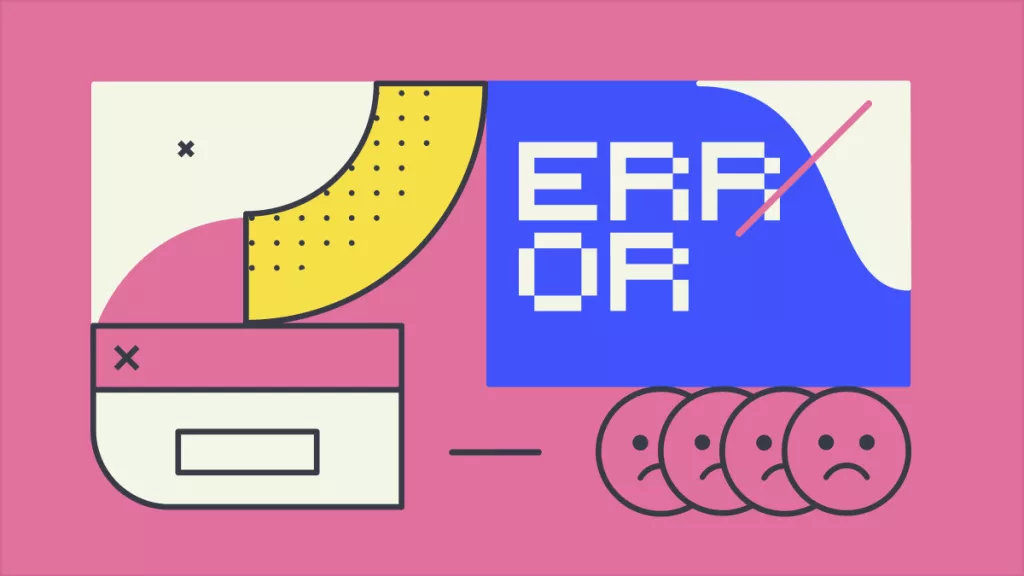
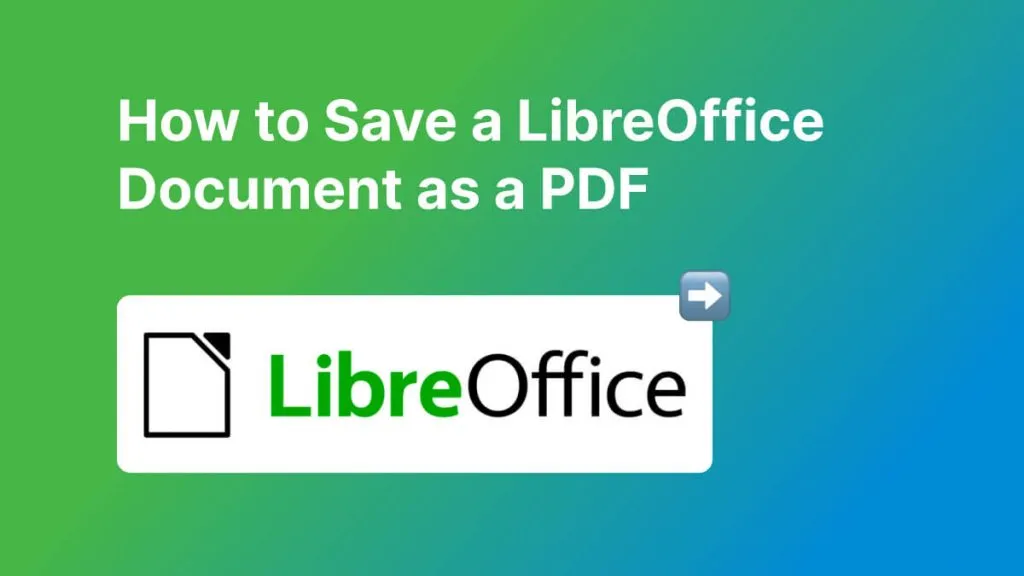
 Lizzy Lozano
Lizzy Lozano 
 Donnie Chavez
Donnie Chavez 

 Bertha Tate
Bertha Tate  Enid Brown
Enid Brown